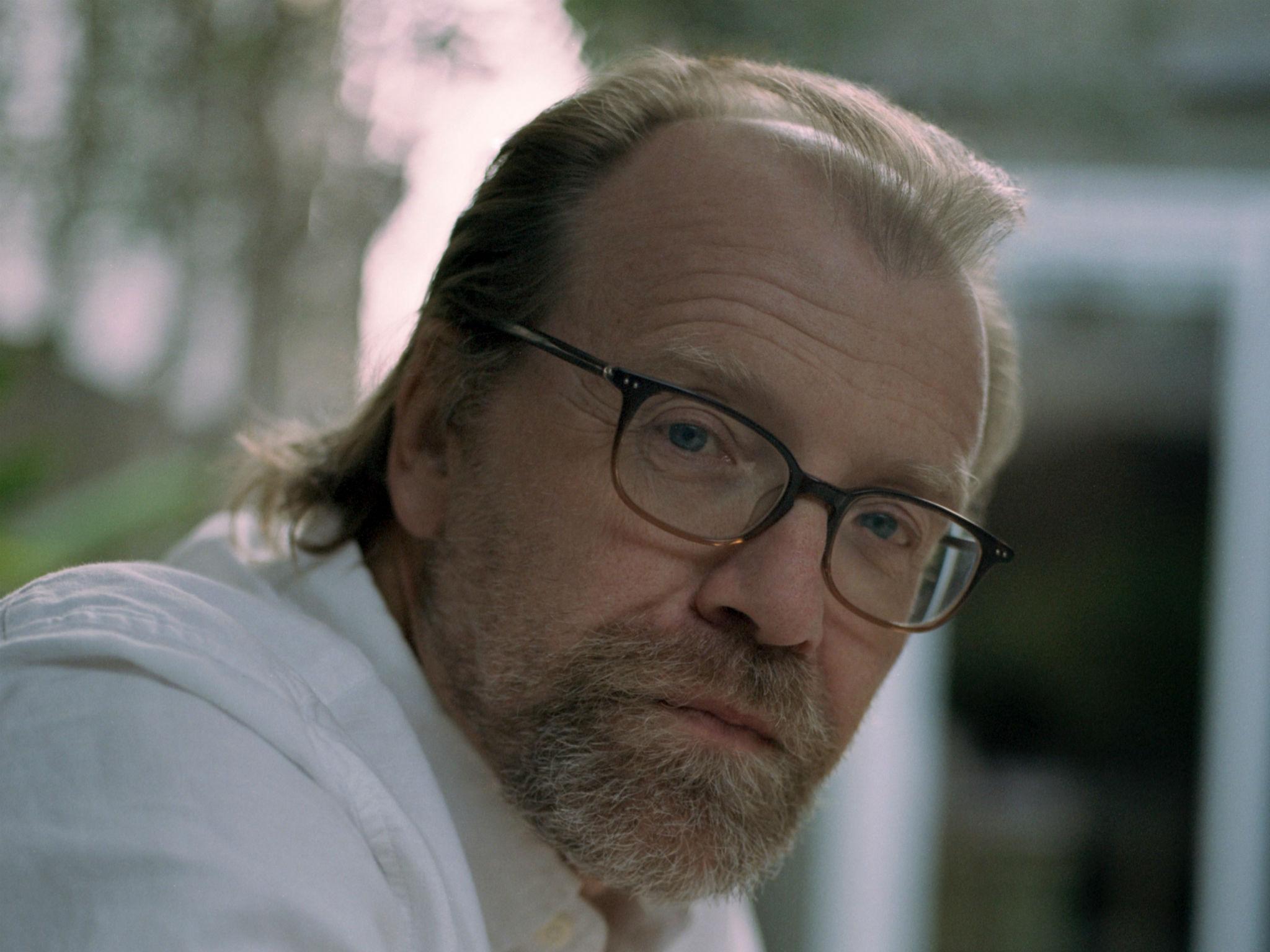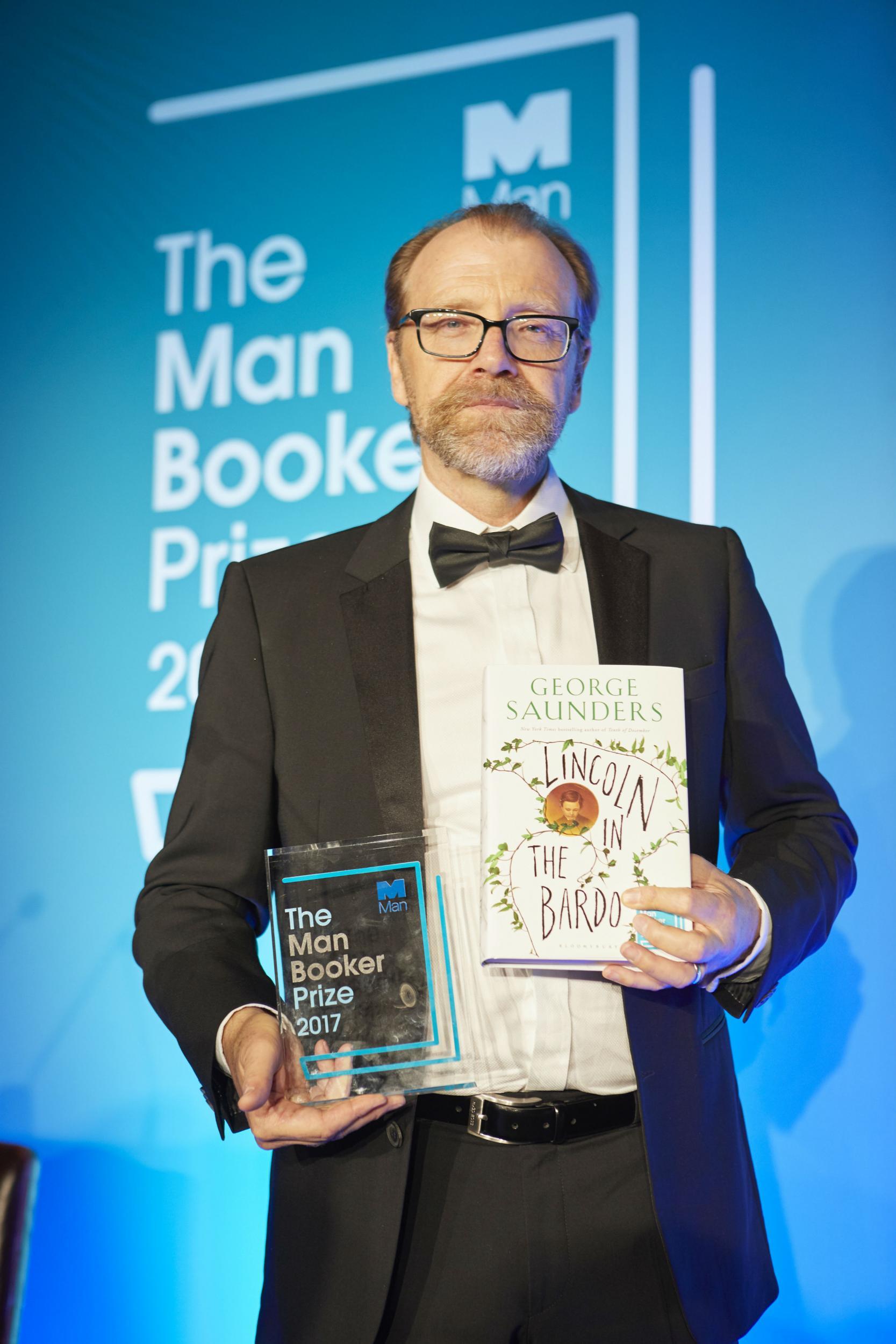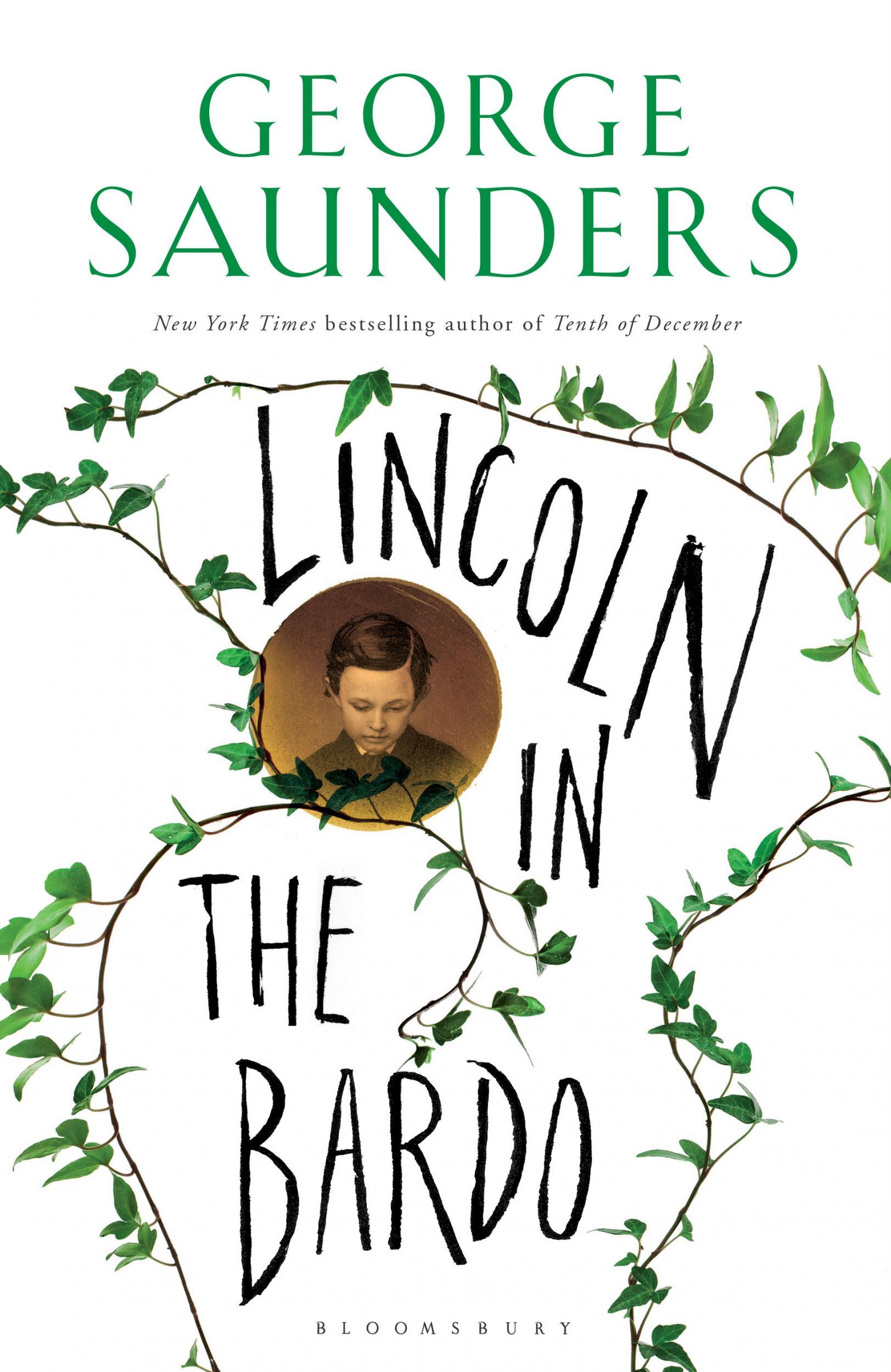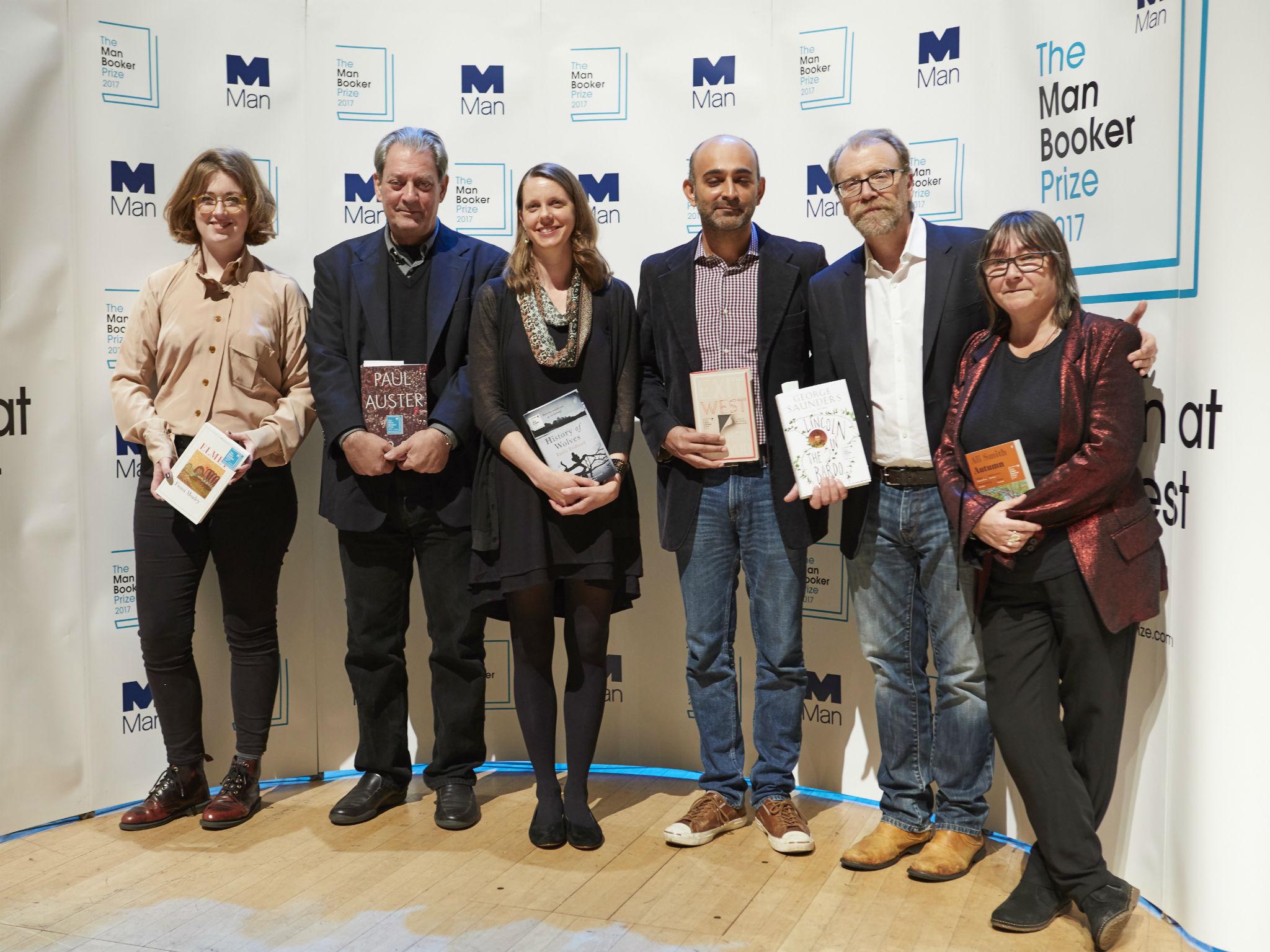2017 Man Booker Prize-winner George Saunders: 'Having a panel of judges approve of what you’re doing is really empowering'
The American short-story writer, who has won the Man Booker Prize with his first full-length novel ‘Lincoln in the Bardo’, is still numb about his win as he talks about what the prize means to him

Your support helps us to tell the story
From reproductive rights to climate change to Big Tech, The Independent is on the ground when the story is developing. Whether it's investigating the financials of Elon Musk's pro-Trump PAC or producing our latest documentary, 'The A Word', which shines a light on the American women fighting for reproductive rights, we know how important it is to parse out the facts from the messaging.
At such a critical moment in US history, we need reporters on the ground. Your donation allows us to keep sending journalists to speak to both sides of the story.
The Independent is trusted by Americans across the entire political spectrum. And unlike many other quality news outlets, we choose not to lock Americans out of our reporting and analysis with paywalls. We believe quality journalism should be available to everyone, paid for by those who can afford it.
Your support makes all the difference.Days after George Saunders’s novel Lincoln in the Bardo won this year’s Man Booker Prize, the US author is still numb.
Sitting in the cozy reading room of London’s Charlotte Street Hotel, Saunders tells me the book was initially inspired by an anecdote he first heard about Abraham Lincoln while in Washington DC with his wife and her cousin 20 years ago: at the beginning of the Civil War, after the death of his son, a bereft Lincoln reportedly visited his child’s body in the Georgetown Cemetery on numerous occasions. The story sparked an idea for Saunders, but it was left to gestate for the next couple of decades before he decided to really develop it.
The book’s narration begins from this point, unfolding over the evening of the 22 February 1862, as Lincoln contemplates his son Willie’s death over his body in the crypt, with the reader being taken on a tour of “the bardo” – the name for the intermediate space between life and rebirth in Tibetan Buddhism – via a multitude of voices.
While the unique premise of the book is one aspect that sets it apart, it is also its unusual style that has both challenged and captured the imagination of readers and the Man Booker Prize judges. Written almost entirely in dialogue, with excerpts of fictional historical accounts intertwined with one another, it breaks wholly with convention.
But far from setting out to break new ground, for Saunders the style came about organically, led by the emotional pull of the tale he wanted to tell: “I always try to focus on the emotional centre of the story,” he says. “And then whatever it takes to convey that emotional power to you – that’s the correct form. I would never want to be experimental for experiment’s sake.”

He also puts some of it down to his upbringing: firmly working-class, with a background in science as a geophysical engineer, he began to write alongside his other work but did not have a traditionally literary foundation. This he sees has been both a blessing and a curse.
“It’s almost like if you’ve never played cricket before – you wouldn’t know how to do but you might find a way to be efficient at it. So it’s difficult when you don’t know the right way to do it but you find your own way of getting there. It’s just a long learning curve.”
And while this was not his first time writing – he is traditionally known for his novellas, journalism and essays – this piece was one that just needed to be a full-length novel: “I think a story has a DNA, it wants to be a certain length. And this one just kept opening out.”
Baroness Lola Young, 2017 chair of judges, referred to his work as “utterly original” in its form and style and commented that, while rooted in history, the book explores “the meaning and experience of empathy”.
Speaking of whether it is this aspect of the story that perhaps resonates with the current day, Saunders reflects that in creative writing such concerns need to be put aside in order to be immersed in the storytelling, but that after, such themes certainly become apparent: “I think it’s about communication – when you walk away from your book and it continues to communicate, that’s when it’s really lovely,” he says.
And as with any writer his experiences as well as his interests in science, political views and Buddhist beliefs all find their way into his work. Now more than ever, he sees the need for culture to be a vehicle for allowing people to be empathetic with one another, particularly in the context of the explosion of the immediate yet detached medium of social media. He predicts a backlash in the same way junk food is being passed over for organic: “I think people are starting to reconsider our over-involvement in the virtual world – it’s not the real world. It’s just not authentic.”

The second US writer to win the accolade – after a 2014 change in rules opened up the Man Booker to any nationality of author writing in English – there has been talk of Americanisation of the prize. Saunders’s response is that really it isn’t his place to comment but that, equally for him, the beauty of literature is that differentials of your identity can fall away.
“The essential thing that happens when you’re writing is that ‘you’ fall away for just for a minute,” he says. “And then the reader hopefully has the same experience. That’s the whole premise of literature – that you and I are different but we can both work ourselves into the same state. That’s what allows us to write from another voice and other characters from other times.”
In winning this award, Saunders follows in the footsteps of some of our contemporary literary greats – Salman Rushdie, Margaret Atwood, Ian McEwan and Kazuo Ishiguro to name a few. So what the prize means to him? On the one hand it has been a boost to what he sees as not a naturally high self-esteem: “Having a panel of judges approve of what you’re doing is really empowering in the sense that you think ‘my instincts aren’t totally f***ked up, I must have some sort of idea what to do.’” On the other, the experience of being grouped with shortlisters, including Ali Smith and Paul Auster, who shared stages and readings together, was also a fascinating process for him. In particular, a night at the Southbank for the London Literature Festival, allowed their work to be put into dialogue, with the authors and the audience finding surprising common ground between writers from disparate backgrounds exploring an array of subjects.

In terms of where he sees his trajectory from now, his immediate response is: “I would love to go and write a short story.” But he also feels passionately that the platform the prize could allow him is something he wants to use with care: “As opportunities present themselves to me because of this, I don’t want to misuse them in any way. I don’t want to squander it. I want to use it responsibly and intelligently.”
Most crucially, he sees his own country is in crisis and he hopes to be able to restore some sanity after seeing a real “wilting of the liberal imagination” during the course of the Trump campaign. At 58, he sees the upcoming generation, freed of the inherited prejudices that “came in the water supply” for his own, as a source of hope. Though for him, in our current ultra-polarised state, it is important to have balance in the way you see the world: “I think optimism and pessimism come out of impatience,” he says. “I think the most complex attitude is to see that life is everything: it’s beautiful and it’s horrible. The ideal is to be open to the reality in front of you.”
‘Lincoln in the Bardo’ is published by Bloomsbury
Join our commenting forum
Join thought-provoking conversations, follow other Independent readers and see their replies
Comments